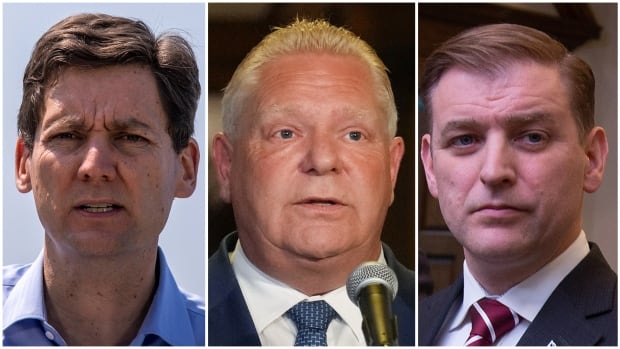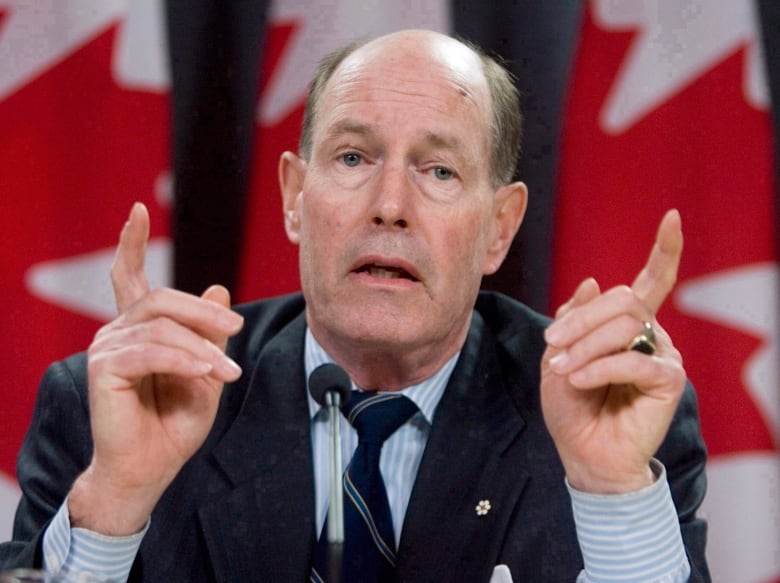
On Tuesday, Newfoundland and Labrador Premier Andrew Furey became the latest provincial leader to join the growing political chorus against another interest rate hike.
Furey’s office released a letter to Bank of Canada governor Tiff Macklem in which the premier called on the bank to “more fully consider the negative impacts” interest rate hikes are having on Canadians and to forgo another rate hike “at this time.” The bank is expected to announce its next rate decision on Wednesday.
Last week, B.C. Premier David Eby sent a letter to the governor urging a halt to rate hikes in the name of affordability.
This week, Ontario Premier Doug Ford sent a similar letter — and followed it up with some of the strongest language yet from any Canadian politician on rate hikes:
“[A] message to the Bank of Canada: Enough is enough. You’re trying to kill the economy. You personally are responsible for creating inflation,” Ford told a press conference Tuesday.
“Companies do not want to invest in new equipment because of the interest rates. A lot of people can’t afford to get a mortgage because they’re struggling. They’re going to be losing their homes. That’s on your shoulders.”
The politics behind the pressure
The political pressure is coming from premiers whose governments are leaning hard on affordability as a priority.
All three premiers come from different parties: B.C.’s New Democrats, Ontario’s Progressive Conservatives and Newfoundland and Labrador’s Liberals.
One former Bank of Canada governor says there’s politics at play.
It’s terrible because the impartiality, the independence, the non-partisanship of the central bank in Canada is extremely important and this is a reckless act that put that in jeopardy.– Ross Hickey, UBC Okanagan
“It’s a bit of … political grandstanding on the part of the premier[s],” said former BoC governor David Dodge when asked about the letters.
He said he doesn’t see a problem with that.
“There’s always a dialogue between the minister of finance and the governor of the bank, between public servants in (the federal Department of Finance) and staff at the bank,” he told CBC News.
“There’s always a dialogue going on. That’s how the system is actually supposed to work. Where the problem would come is if there were no dialogue.”
Dodge said the Bank of Canada is transparent with its process and explicitly outlines the factors behind each interest rate decision, which include taking into account the public’s best interests.

“How I dealt with it, and how the current governor deals with it, is to try to explain to people — and to governments — why it is that the current interest rate level, or the current policy they are pursuing, is appropriate in order to stabilize the economy, both in terms of growth and in terms of price level,” he said.
Not everyone thinks the premiers’ attempts to influence the bank are harmless. Ross Hickey, an economist and associate professor at UBC Okanagan, called the letters “ridiculous.”
“It’s reckless because we don’t want our central bank to respond to politicians at all,” he told CBC News Friday after Eby’s letter was published.
“It’s terrible because the impartiality, the independence, the non-partisanship of the central bank in Canada is extremely important and this is a reckless act that put that in jeopardy.”
It’s a politicalexercise in those premiers taking the chance to sort of stand up for regular folks in their in their provinces.– Gerald Baier, UBC associate professor of political science
Hickey compared it to attempts to influence the Supreme Court of Canada and said the Bank of Canada must remain at arm’s-length from politicians.
If interest rates are held where they are, he said, it should be because the data suggests that is the prudent move right now.
“I hope that the Bank of Canada speaks to all Canadians and all politicians, and restates the importance of the independence of the central bank from politics,” he said.
Not harmful, not helpful
Some political experts don’t see publicly lobbying the Bank of Canada as harmful.
“I don’t see it as particularly negative,” said Gerald Baier, associate professor of political science at the University of British Columbia.
“Obviously, the Bank of Canada collects information, collects data that helps make its decisions. But it’s not hurting anyone for them to write a letter that says, ‘Here’s what’s going on and here are the negative effects of of continued interest rate hikes.'”
Baier also suggested the premiers’ actions are mostly about political optics and the only ones they’re helping are themselves.
“It’s a political exercise in those premiers taking the chance to sort of stand up for regular folks in their in their provinces,” said Baier.
“A lot of the audience is not the Bank of Canada but voters who would look at their premiers and say, ‘You gotta be doing something more to influence this policy.'”
The NDP’s Jagmeet Singh was the first federal leader to wade into the debate this week.
“The Bank of Canada’s approach is not working — in fact, it’s creating more pain for people,” Singh told a recent news conference in B.C.
“Grocery prices are extremely high and the cost of housing remains really high. How has the Bank of Canada made people’s lives better? By taking on inflation when grocery prices continue to rise and housing is still completely unattainable for people.”